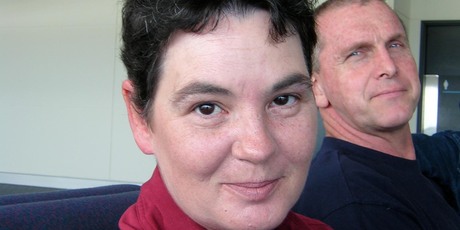By Brendan Oliver Bergh
Impunity Watch Reporter, South America
BRASÍLIA, Brazil – Civil Union in Brazil links three individuals together in legal matrimony. Some have seen the unions as a logical progression of civil rights, while others in conservative and religious groups have criticized its morality and legality.

The trio – a man and two women – have been living together in Rio de Janeiro for three years before tying the proverbial civil knot. The trio decided to keep their identities a secret in May when the union was formed. The public was made aware of the union in late August.
Each member of the union is connected to each other equally, unlike in traditional polygamous marriages which are followed by some religious sects.
According to the public notary who granted the civil union this union may be labeled as a “polyfidelitous union.” Claudia do Nascimento Domingues, the notary who performed the ceremony, had the couple legally registered as a “stable union” which extends all the benefits of marriage. The union entitles the trio to legal rights concerning the division of property in case of separation and death. The debate continues as to death benefits, child welfare, homeownership and health insurance plans and discounts. The legal question of what would happen with a child is thought to be left to the courts, should the trio pursue the matter.
A judge in San Paulo approved Brazil’s first gay marriage in July of 2011, converting their civil union to a marriage. While same sex unions have been legal in Brazil since 2004, this is first multi-partner union of its kind.
Critics, however, claim that “the union is void of any legality.” Regina Beatriz Tavares da Silva, the head of the family law committee of a lawyers’ association in Sao Paulo believes that it would be impossible for a civil union between three to be equal to that of union of two. “It goes directly against the constitution,” da Silva said. “Monogamy is defined as relations between two, not three or four or five.”
Religious groups have voiced their outcry as well, fearing the often cited “slippery slope” that would lead to a devaluing of the institute of marriage and family.
“The institution of family cannot be defended with the approval of actions that seek to distort its definition,” the religious, conservative Plinio Correa de Oliveira Institute said in a statement. “The purpose of this (union) is not to build families, but to destroy them.”
For further information, please see:
CNN – Unprecedented Civil Union Unites Brazilian Trio – 31 August 2012
Journal de Uberaba – Marriage Between Three People – 29 August 2012
The Telegraph – Three People Enter Into Civil Union In Brazil – 28 August 2012
The BBC – Three-Person Civil Union Sparks Controversy In Brazil – 28 August 2012



